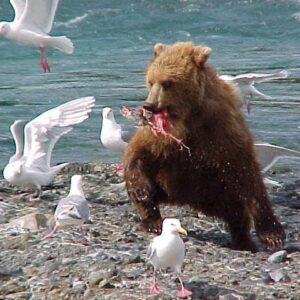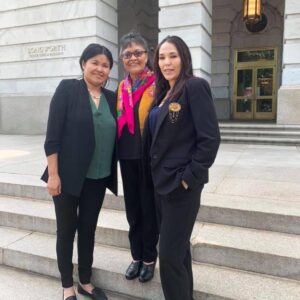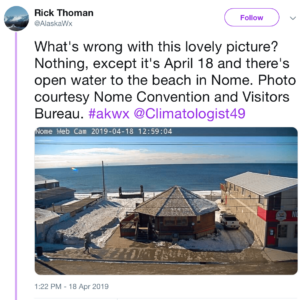Alaska Brief–May 2019
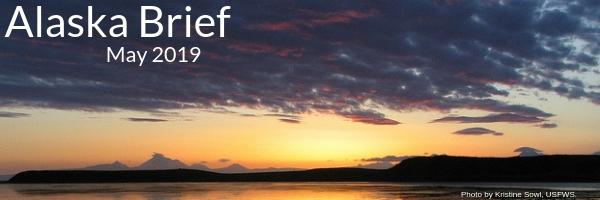
| The Arctic got hot early this year. Klawock hit 70 degrees Fahrenheit in March, the earliest 70-degree day ever recorded in Alaska. Arctic sea ice has hit a record low. Temperatures surged 30 to 40 degrees Fahrenheit above average across the Arctic Ocean. The concentration of carbon dioxide in the atmosphere reached 415 parts per million for the first time in human history last weekend–the highest level in at least 800,000 years, and probably over 3 million. Crisis in an age of distraction We face a time of crisis, yet live in an age of distraction. We need to focus on how to make the changes we need to survive, yet we bounce from tweet to insult to faux pas to disinformation to GIF to tweet again. The internet peddles in distraction, according to Nicholas Carr in his book, “The Shallows: What the Internet is Doing to Our Brains.” It’s not just that the online world distracts us, but that it alters how we think so that we remain in the shallows of thought. Distraction is now the tool, the method, the tactic, the commodity, and the ultimate goal. The business of distraction seeks your attention, not depth of content or deep thinking. The same goes for our political and social systems. Those with and in power have latched onto distraction as the means to holding power. They bump and derail thoughts and conversations like pick pockets exploiting a crowded street. They throw shade on people whose ideas and solutions threaten their power. They fund disturbance to keep people from unifying around their connections, common purposes and goals. We need deep solutions, not shallow ones. The culture of distraction may alter our brains, but we have the choice to not let our brains be duped. Each of us chooses what we want to spend our time absorbing and lifting up. Each of us can turn our attention to where our values lie. My values do not align with the Trump administration’s, so I don’t need to put attention on his tweets. There is very little that’s meaningful in his 280-character blasts anyway–they’re driven by his need for attention and to distract from his misdeeds and what’s important. We need to be mindful of how we spend our time and energy. We need to set time aside to turn off the chatter. We need to concentrate on the climate crisis and all the interconnected challenges on our doorstep. The question isn’t whether we should reduce emissions, stop the burning of fossil fuels, invest in sustainable energy, and support those on the front lines of violent storms, erosion, floods and droughts. Those things are no-brainers. We must think deeply and act quickly to address climate change. Take a break from your online world and demands to focus on solutions. Mother Earth needs you!! |
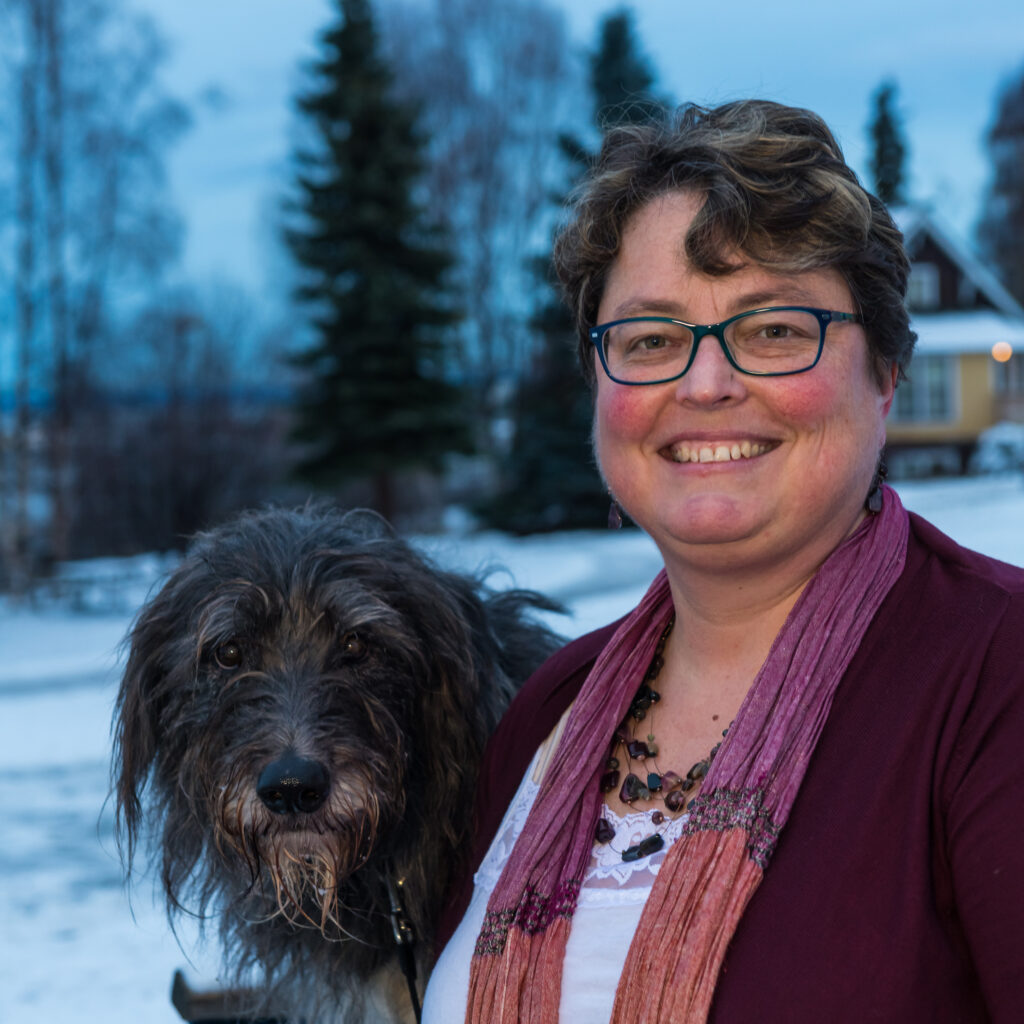
| Vicki Clark Executive Director |
| PS: Your support of Trustees for Alaska is critical now more than ever. |
Pebble is an unwanted guest
One cut corner and ignored fact after another make the proposed Pebble mine an unwanted guest that does not know that “No” means “No Pebble mine.”
A historic vote to protect the Arctic Refuge
A historic vote moved the bipartisan Arctic Cultural and Coastal Plain Protection Act out of the House Natural Resources Committee this month. Now we need support in the House to restore protections for the Arctic Refuge.
What will climate do to us?
What worries a climate expert? Alaskans already see and feel the impacts of a changing climate, but it’s what’s invisible that will change the future we live in .



